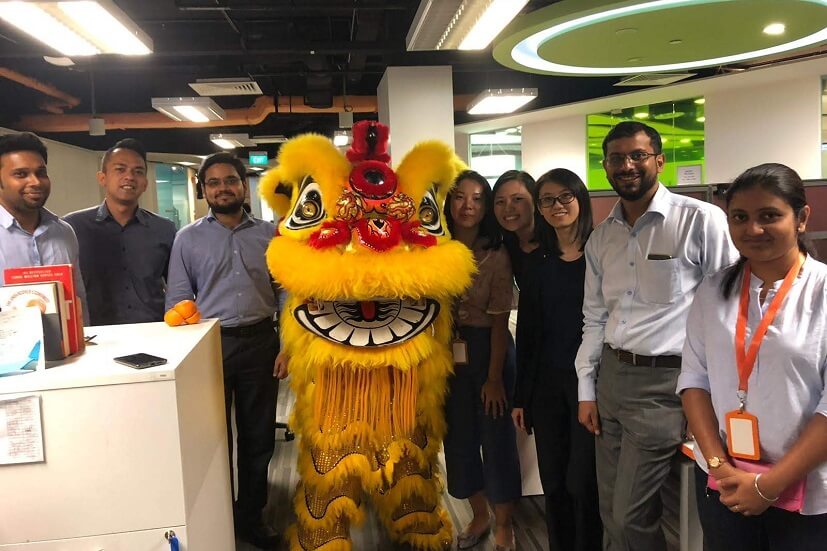Data & Analytics: An Insurance Perspective

Technology has changed the way we live our lives and, as a consequence, the way we do business. Within the span of barely a decade, the smartphone has become almost part of us and the use of mobile apps and digital interactions have contributed to many industries transforming their operations.
As more of our lives are shifted online and more businesses go digital (in whole or in part), more data is generated. Add to that the fact that our ability to compute and analyse this data has exponentially increased over the decades, and you’ll see why and how we’re experiencing a data boom.
It’s the age of Big Data.
What is Big Data?
One of the questions I often encounter is “How big is Big Data?” and my answer is that there’s no one answer. Big Data in many sectors today ranges from a few dozen terabytes (1,000GB = 1TB) to petabytes (1,000TB = 1PB).
But Big Data doesn’t refer only to the amount of data. Over the last few years, the definition of Big Data has expanded from the 3 Vs – Volume, Variety, Velocity – to 5 Vs, adding Value and Veracity to the previous 3. Quality, as well as quantity.
Everyone’s using Big Data
Companies have become more aware of the value of Big Data and have been trying to use it to their advantage. Examples of Big Data in our lives are many, ranging from the less noticeable autocorrect options in Whatsapp to the personalisation of product offerings on sites like Amazon.
In banks, other than customising offers, Big Data is being used for fraud detection, picking up on when a credit card holder performs transactions from a new device for the first time or if several transactions take place from different devices within the same day.
The ethos of Big Data is more to do with data being used as an asset for business, empowering organisations to derive new customer insights, optimise resources, improve productivity and personalise customer offerings.

How is data & analytics being used in Insurance?
Generally speaking, the more data we have on a customer, the better we are able to understand their needs, as well as assess the risks involved in insuring them. We’re also able to keep up with their different life stages, during which their needs continue to evolve, and continuously offer them products that become relevant at each stage. With properly analysed & interpreted data, we’re able to understand this and make the right offer at the right time.
Agent productivity is another area where data & analytics is widely used. Distribution efficiency and reach is a crucial lever for any insurance company, and analytics and Big Data help in improving sales productivity.
Data also helps in the detection of fraudulent claims, as well as in optimising operations for more automated underwriting of insurance policies. As the use of data and analytics matures, insurance companies are experimenting the possibilities of personalisation of offers – segment of one, using artificial intelligence (AI) in claims processing, as well as telematics, etc.
What challenges does Big Data present?
The top four challenges we face with data and analytics within the organisation are:
- Limited data and data quality – Compared to many other retail industries and even to banks, traditionally, insurance has been a business with relatively fewer customer engagements – people aren’t buying new policies every day after all. Due to this, the data is limited and sometimes outdated.
- Limited customer interaction – Limited customer interactions mean we have limited opportunities to learn & improve. In comparison, retail e-commerce & banks have multiple reasons (products) & occasions to interact and hence improve their (machine learning) algorithms.
- Data security – Balancing scalability and agility in analytics practice with the right controls on customer data is a challenge and responsibility for all industries but more so for financial industries. Periodic training and system-developed controls by our IT on our customer data enable us to do this at best.
- Recruiting and maintaining talent – The demand for data analytics is on the rise and maintaining the right talent and skillsets have always been a challenge for us. Insurance, initially was not the sought after for data aficionados. But as the awareness of the Insurance-data potential increases this trend is slowly changing. At Income, the senior management recognises the importance of creating a good team along with opportunities to learn and participate in external data science competitions so that we stay ahead of the curve.
How we’re doing things differently at Income (or are we?)

The four things that Income’s data & analytics have been anchored around are:
- Question before data: As author Yuval Harari mentioned, in a world deluged by irrelevant information, clarity is power. Data in itself is just a means and it’s important to start the process right, from identifying broad-based business goals to finding the right questions to ask.
- Business outcomes are the key goals: Data + (business) instinct = final business outcome. Analytics is an incremental journey for the organisation not a singular obsession of the data team. While data scientists are powered by model lifts & precision, it’s the collaboration with our business partners that adds the creativity to our work towards the key goals – our organisation’s business outcomes.
- Balancing the foundation with the experimental: There is a constant endeavour to strike the right balance between improving our business intelligence foundation and running experimental pilots. At Income, we’ve put in a sustained effort in organising & structuring the data we have, while also running pilots and experiments with external partners to broaden our learning.
- Leadership: Much like parenting, a key factor in our growth to date has been our leadership’s ability to balance freedom and accountability, to set the right KPIs and to sponsor experiments. This created a space free from failure and with a deep urgency to learn.
Today, the team has scaled up and as an Analytics Centre of Excellence, our key objectives are to create a data-driven culture within Income and establish a tangible & scalable impact of analytics across the organisation. Such a change cannot happen overnight and in a silo. This journey entails building a culture that enables all the people involved in a data initiative – from the producers of the data, to the people who build the models, to the people who analyse it, to the people who use it in their jobs – to collaborate on making data the heart of organisational decision-making.

Finally, the issues of data privacy, security, and compliance to the governmental regulations in data analytics, is a key responsibility. To be able to make data both protected and accessible; creating ways of responsible & allowable data sharing are top of our minds. In fact, not just Insurance but across industries, as we step into the exciting journey, exploring the possibilities from Big Data & Analytics, we need to be mindful of the ethical and responsible use of data.
In conclusion, the “times they are a-changing” and in this “wind of change” there are opportunities to be tapped in, failures to be learnt from but beyond doubt there is progress to be made. At Income, we look forward to this journey of insurance made different.




